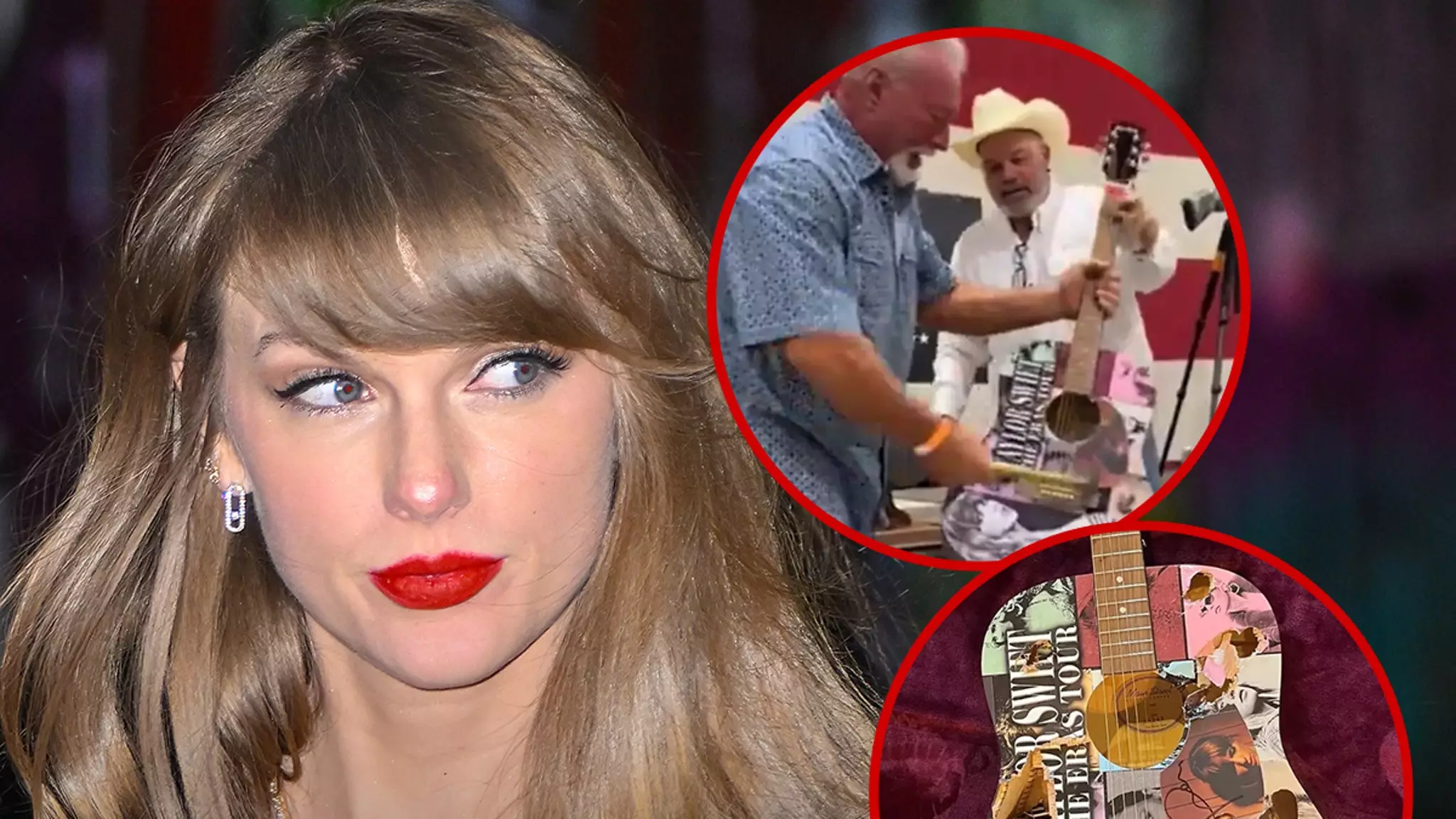Gary Estes, a 67-year-old Texan, recently found himself at the center of a firestorm after spending an astounding $4,000 on a guitar purportedly signed by Taylor Swift, only to smash it to pieces moments later. This eyebrow-raising act during a charity auction—held at the Ellis County Wild Game Dinner in Waxahachie, Texas—has sparked a heated debate over the intentions behind this viral incident. Criticism erupted across social media, and the video showcasing Estes’s antics quickly amassed millions of views, raising questions about the nature of unchecked fan behavior and political expression.
In light of the backlash, Estes has attempted to clarify his actions, insisting that his destruction of the guitar carried no malicious intent and was merely a prank. He stated, “There was nothing mean about it, nothing bad about it. It was just a joke that they were making up on the stage.” This assertion brings to light the often complex relationship between intent and interpretation in public spectacles. While Estes and auctioneer Craig Meier described the act as a light-hearted jest, the cultural context—namely Swift’s political activism—shrouded the incident in layers of meanings that transcended mere humor.
The humor, as it turns out, was meant as a dig at Swift’s political endorsements, notably her support for Vice President Kamala Harris during a pivotal moment in the upcoming presidential race. This highlights a troubling trend where artistic expressions are interwoven with political statements, leading audiences to interpret them differently based on their ideologies. For many, the act of smashing a guitar signed by an artist who has publicly taken a stand against a political figure becomes a poignant symbol of dissent.
Estes’s actions align with a burgeoning trend among politically charged citizens who feel disenfranchised by celebrities voicing their opinions on social issues. Following Swift’s endorsements, several fans, particularly those aligning with other political factions, have taken to social media to publicly destroy her merchandise in protest. This not only underscores a growing division between pop culture and political identity but also reflects how art and celebrity have become battlegrounds for broader societal grievances.
Auctioneer Meier has also echoed the sentiment that this act was not simply vandalism; rather, it was a reflection of the tensions swirling in the current political climate. His statement, labeling the incident as part of a “light-hearted bit of a dig,” reveals the complicated dynamics at play.
In an ironic twist, the shattered remains of the guitar have found new life on eBay, as the auction for the remnants opens a new marketplace for this controversial piece of memorabilia. The aftermath raises intriguing questions about value—not just monetary, but also cultural. As the world grapples with the ramifications of public figures becoming heavily enmeshed in political advocacy, it’s worth pondering: Are we witnessing the birth of a new category of protest toward celebrity endorsements, and what does that say about our society?
Thus, Gary Estes’s viral moment transcends a simple act of destruction; it becomes a metaphor for the intersection of politics, celebrity culture, and individual expression in today’s polarized environment. Whether seen as a foolish joke or a pointed critique, his actions serve as a flashpoint for deeper discussions about respect, identity, and the role of artists in contemporary society.

